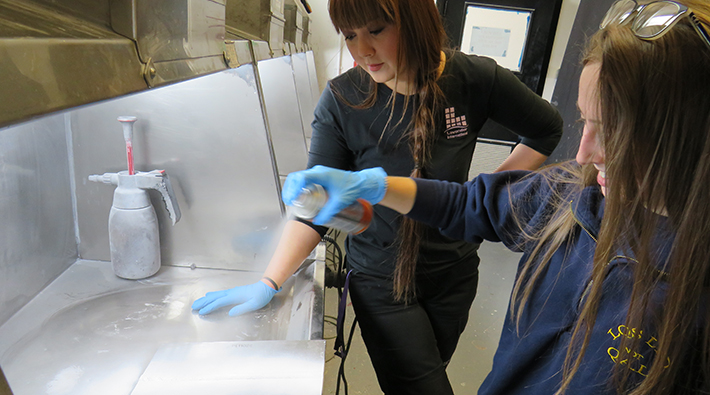2019 marks the 100 year anniversary of The Women Engineering Society (WES), which was first established to support women in engineering following their roles within the industry during the First World War.
Over the past 100 years there has been a cultural shift towards the acceptance of women within the engineering sector, which has positively impacted upon the diversity of our workforce in the UK. Research highlights that a workforce with a wide range of backgrounds, perspectives and experiences maximises organisational performance in terms of quality, safety, innovation, creativity retention and engagement[1] – all factors that are essential for growth and development within the NDT industry.
However, we still have a long way to go to create a diverse and inclusive workforce within NDT. Women still remain underrepresented in engineering, with just 9% working in engineering compared with 51% in the overall UK workforce;[2] this figure being lower within the NDT industry at 8%.[3] Research suggests this gender imbalance has implications not just for the immediate workforce, but also the extent to which girls are likely to be attracted to our industry in the future as a result of stereotypes and unconscious biases.
Role of unconscious biases
Unconscious biases are judgements or decisions we make on the basis of our prior experience, our own personal deep-seated thought patterns, assumptions or interpretations without any awareness that we are doing it.[4] Our unconscious mind automatically categorises people to enable us to make rapid decisions without having to engage the limited resources of the conscious mind that is required for more complex cognitive tasks e.g. problem solving and planning. Everyone has unconscious biases – we are born with a preference to associate with people who are similar to ourselves based on characteristics e.g. gender, accent, education, age, ethnicity, hobbies and interests.
Unconscious biases mainly occur from groups with a similar interest (in-group) towards those who do not have the same interests (out-group). They give you a quick judgement about what you may expect from people in certain situations; for example, the kind of people you expect to see and accept in engineering. Children often expect to see men in engineering roles and so young girls may not believe that a career in engineering is an option for them[5]. To work towards creating a more diverse and inclusive industry, we must look at addressing the barriers and challenges faced by young girls and women, starting with the stereotypes and unconscious biases that still pervade our culture.
Studies[6] show that role models are an incredibly effective way to encourage girls and women to consider a career in engineering. Girls exposed to women in counter-stereotypic roles e.g. a female engineer are more likely to automatically associate women with these roles and so are more likely to consider a career in engineering.
“The NDT industry is unknown to most people, yet it plays such an important role throughout the engineering sector. The fact that NDT is unknown creates even more challenges to attract young talent, especially women. The more women who are in engineering positions, acting as role models, helps create a positive perception of NDT and challenges attitudes and biases that engineering is only for men” – Says Rachel Wood, an NDT tutor at Lavender International.
At Lavender International, we are championing diversity and continually working towards creating a more inclusive culture by:
1. Raising awareness about unconscious biases to our employees and the benefits of having a diverse and inclusive culture;
2. Acting as role models;
3. Inspiring the younger generation by attending career events, delivering NDT workshops to local schools and colleges, promoting the NDT Apprenticeship schemes, being involved in STEM events, supporting work experience placements;
4. Supporting the development of all our employees;
5. Creating an inclusive environment for our students;
6. Ensuring we portray a gender balance on our website and in our marketing material;
7. Adapting our recruitment process to ensure it is as inclusive as possible.
Lavender International will be celebrating International Women in Engineering day on 23rd June – a global campaign aimed to increase the profile of women in engineering and encourage men to be active in inclusion and gender diversity and recognise the achievements of women engineers throughout the world. #Transformthefuture #INWED2019

